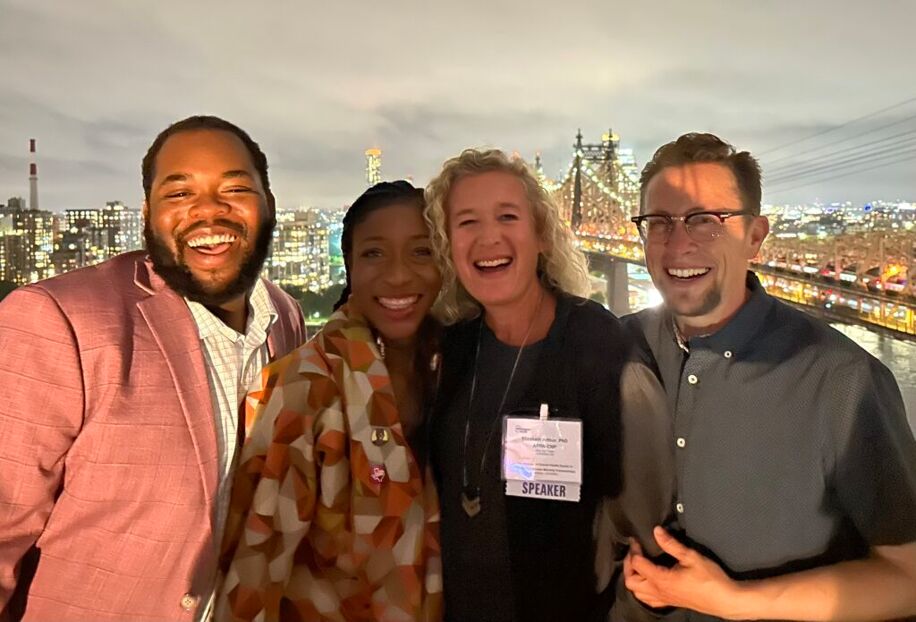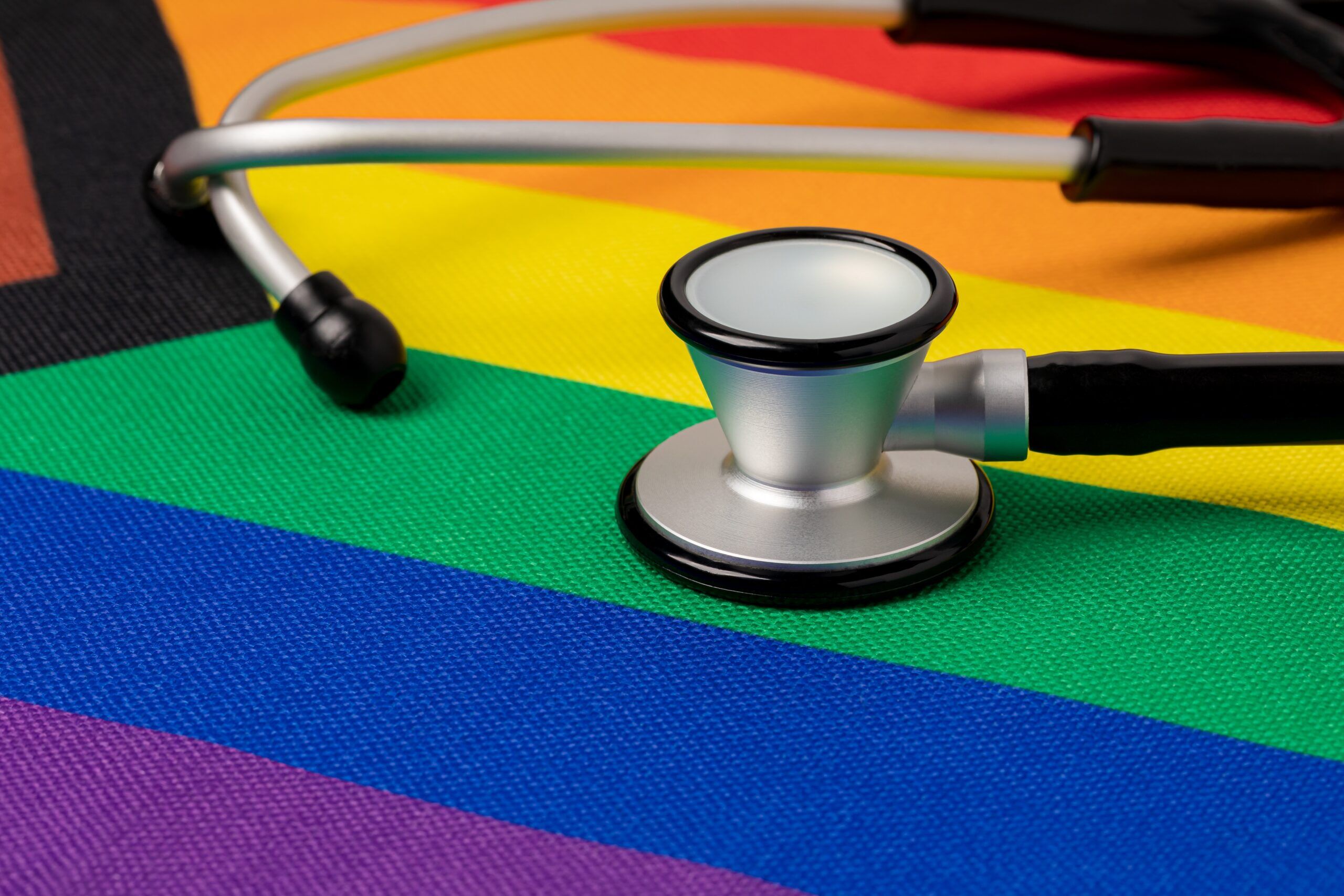Cancer is a queer issue too and this organization is ensuring that the LGBTQ+ community is fully supported with these new initiatives.
For the LGBTQ+ community, access to proper healthcare, resources, and education are still a struggle. While queer and transgender people experience unique health concerns, chronic diseases, like cancer, can exacerbate other challenges LGBTQ+ people face. Not to mention, disparities in LGBTQ+ healthcare make navigating cancer even more difficult.
That’s where the National LGBT Cancer Network comes in. The National LGBT Cancer Network “works to improve the lives of LGBT cancer survivors and those at risk” through proper education, training, and advocacy. Helmed by Dr. Scout, Executive Director of the National LGBT Cancer Network and principal investigator of the organization’s LGBTQ tobacco-related cancer disparity network and Out: The National Cancer Survey, the National LGBT Cancer Network is shining a light on LGBTQ+ healthcare disparities and moving the needle on cancer support for queer and trans people.
Join the frontline of change
Be informed, be inspired, and be part of the conversation that’s shaping a queerer world with our twice-a-week newsletter.
“We know LGBTQI+ people take longer to get a cancer diagnosis, have medical mistrust that can interfere with our care, and have less satisfaction aftercare,” Dr. Scout said. “All of these disparities are based on discrimination, and we’re here to change that.”
The National LGBT Cancer Network develops a variety of trainings and educational resources designed to alleviate health disparities connected to the LGBTQ+ community, including LGBTQ+ patient treatment trainings, guides on how to develop welcoming spaces for queer and trans people, and even cancer peer support groups.
“We train thousands of providers every year on how to do a better job for our communities and provide lots of technical assistance for offices looking to go even further,” Dr. Scout said. “Perhaps more importantly, we provide resources for our own communities to counter this discrimination, like screening campaigns, strategies to help find welcoming providers, support groups, and firsthand stories from people who’ve survived cancer.”
And with anti-LGBTQ+ bills spreading across the nation, especially within Florida, the organization launched the Florida Project. In collaboration with Equality Florida and funded by a grant from Gilead Oncology Corporate Giving, the National LGBT Cancer Network audited over 150 hospitals, evaluating LGBTQ+ inclusivity in online presence, nondiscrimination policies, and how hospitals promote LGBTQ+ services. The Florida Project, while focusing on LGBTQ+ folks, ultimately serves to improve health equity for marginalized communities.
Additionally, the National LGBT Cancer Network’s Cancer Leaders Like Us program exemplifies how queer and trans people can affect change in healthcare. The Cancer Leaders Like Us program, also sponsored by Gilead, brings several interns in to support initiatives that address issues impacting LGBTQ+ and BIPOC communities. Currently, there are four interns, each one working with either the Global Liver Institute, Columbia University Herbert Irving Comprehensive Cancer Center, the Trans Health Project, or the National LGBT Cancer Network.
Their efforts include, fact sheets for LGBTQIA+ liver cancer patients, a library of resources relating to diversity, equity, and inclusion within clinical trials and research, trans health-focused op-eds, and career readiness workshops for emerging LGBTQ+ leaders in healthcare. The work from the Cancer Leaders Like Us interns serves a reminder that LGBTQ+ healthcare, while nuanced, needs to be examined and supported in order to ensure that queer and trans people can obtain healthcare that’s affirming and free from discrimination.

“Getting funding from Gilead to support our pipeline diversity initiative, Cancer Leaders Like US (CLLU), was very exciting,” Dr. Scout said. “Too many young LGBTQI+ and/or BIPOC people don’t have access to the established leaders that help pave the way for them to become leaders themselves in this area. CLLU has let us reach out to up-and-coming undergrad, grad, and early career people interested in LGBTQI+ cancer and connect them with colleagues and opportunities that can accelerate their careers. Someday, you may be in front of a health provider or researcher who decided to specialize in LGBTQI+ cancer – because of CLLU.”
To learn more about the National LGBT Cancer Network head to cancer-network.org.
Related:
The Cass report carries concerning implications for trans healthcare in the UK
The report recommended the closure of the sole gender clinic in England, The Tavistock Center.
Here’s why this much-memed medical checklist is actually a great idea
An inclusive medical intake form just went viral, and it’s delivering on both humor and health for folks of all genders.
Don't forget to share:
Help make sure LGBTQ+ stories are being told...
We can't rely on mainstream media to tell our stories. That's why we don't lock our articles behind a paywall. Will you support our mission with a contribution today?
Cancel anytime · Proudly LGBTQ+ owned and operated
Read More in Impact
The Latest on INTO
Subscribe to get a twice-weekly dose of queer news, updates, and insights from the INTO team.
in Your Inbox















